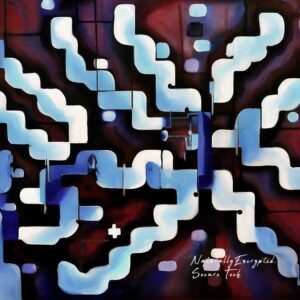Counterfeit Goods and Fraud: How NFTs Hold the Key to Combat
The persistent challenge of counterfeit goods and fraud has plagued industries worldwide, casting a shadow over luxury fashion brands, collectible art, and many other areas. This proliferation of fake products not only tarnishes the authenticity of the original creators but also endangers unsuspecting consumers.
Amidst this bleak landscape, a ray of hope emerges with the advent of Non-Fungible Tokens or NFTs. These special tokens can revolutionize the foundations of how we establish the genuineness and ownership of digital and physical assets. By leveraging the power of NFTs, we can forge a robust and effective solution to combat the menace of counterfeit goods and fraud.
NFTs are unique digital assets stored on a blockchain, a decentralized and transparent digital ledger. Each NFT carries within it distinctive attributes and a unique identifier, setting it apart from any other token in existence. This unique identifier allows for the authentication and verification of the asset’s provenance, ensuring that it is an original creation rather than a counterfeit.
Digital Certificate of Authenticity
When utilized for physical merchandise, NFTs serve as digital certificates of authenticity. By linking an NFT to a specific product, manufacturers and creators can create an immutable record of the item’s origin, production process, and ownership history. This decentralized and transparent system presents counterfeiters with an insurmountable challenge to pass off fake products as genuine, as the blockchain provides an unalterable trail of the item’s journey from creation to sale.
Real-time Tracking
NFTs possess the power to facilitate real-time tracking and vigilant monitoring of merchandise throughout the supply chain. By embedding NFTs with smart contracts, which are self-executing agreements with predefined conditions, manufacturers can meticulously trace the movement of goods, ensuring that they remain within authorized channels. This feature becomes particularly valuable in high-value industries, such as luxury goods, where counterfeiting is rampant. Retailers and consumers can easily verify the authenticity of a product by scanning the associated NFT, giving them confidence in their purchase.
Protecting Value and Ownership
The capacity of NFTs to thwart fraud extends beyond physical goods. They also provide a solution for protecting the value and ownership of digital assets. A prime example lies within the art sphere, where NFTs have emerged as a groundbreaking instrument for artists to vend and protect their digital masterpieces. By minting their artwork as NFTs, artists can prove their ownership and trace the lineage of each creation. This feature not only helps artists monetize their work in the digital realm but also safeguards against unauthorized duplication and distribution. NFTs effectively enable creators to establish a direct and traceable connection between themselves and their creations, which was previously challenging in the digital space.
Fostering Trust
Furthermore, the integration of NFTs with decentralized marketplaces cultivates confidence and transparency in the digital economy. Prospective buyers can validate the genuineness and ownership of digital assets prior to making a transaction, effectively mitigating the risk of falling prey to fraudulent schemes.
NFTs also pave the path for new streams of revenue for content creators, granting them the ability to receive royalties for subsequent sales or transfers of their digital assets. This creates a more equitable system where artists and creators can reap the rewards of their artistic works’ long-term value appreciation, extending beyond the initial sale.
To wrap things up, NFTs have blossomed into a potent instrument for combating counterfeit goods and fraud across diverse sectors. By harnessing the transparency and immutability inherent in blockchain technology, NFTs can provide a verifiable record of authenticity, provenance, and ownership. Whether applied to physical or digital assets, NFTs possess the transformative power to reshape industries plagued by counterfeit goods.






